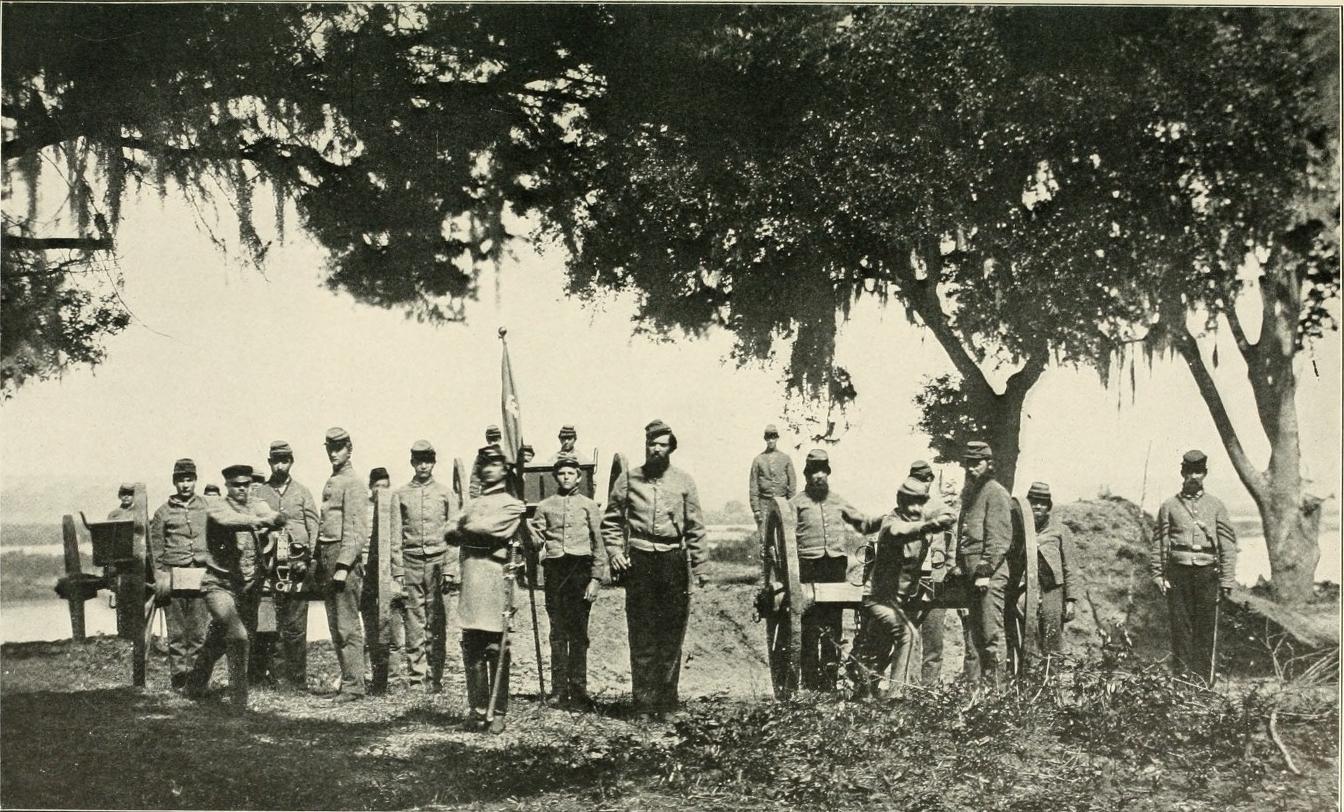Analysis: Who joins rebel armies?
Confederate artillery at Charleston Harbor, 1863.
Social scientists have access to a lot of meaty data on state military recruitment. But recruitment by nonstate forces in civil wars is another story.
Rebel movements usually keep fairly poor records and for good reason: If they lose, having a well-maintained spreadsheet of their fighters for their enemy to find won’t extend any lifespans.
Trying to figure out who actually does the fighting in civil wars — and why — is an ongoing challenge for conflict scholars.
Related: Why you need to know about Guatemala’s civil war
One way to approach the problem is to focus on old wars. In the latest issue of the American Political Science Review, Andrew Hall, Connor Huff and Shiro Kuriwaki went all the way back to the American Civil War to answer a question that’s at the core of how the Confederacy built its army: Did slave ownership make people more or less likely to join the Confederate army?
At first, this might seem like an idiosyncratic question: Slaveholders don’t make up a significant percentage of combatants in most modern wars. But in reality, it goes to the heart of a basic question about how rebel movements — that largely benefit upper classes — function.
The Confederacy rebelled to preserve slavery, but, as Hall et al. write, “wealthy Southerners had incentives to free-ride on poorer Southerners and avoid fighting.” When upper class interests are a rebellion’s cause, do they fight, or do they pay for poorer people to fight in their stead?
Hall et al. first had to figure out who actually fought in the Confederate army. They combined census documents, soldier lists, and the 1850 Slave Schedule, which lists enslaved people and slave owners, to make a data set of nearly everyone, slaveholders and not, in the Confederate army. The data set showed that, while non-slaveholders massively outnumbered slaveholders in the Confederate army and in the Confederacy overall, on a per-household basis, slaveholders actually contributed more soldiers to the rebellion than non-slaveholders did.
Each non-slaveholding household produced 1.78 Confederate soldiers each, but households that enslaved between one and three people produced 2.04 Confederates each and households that enslaved over eight people produced 2.18.
Those numbers don’t necessarily mean, however, that the slaveholding households sent more soldiers to preserve their interests in maintaining human bondage. It could have been, for instance, that poorer, non-slaveholding households could less afford to send young people off to war.
The researchers wanted to differentiate between people who were rich but did not own slaves and people who were slaveholders. To do this, Hall et al. utilized data from another indelible moral stain on American history: genocide against Native Americans.
Georgia held a series of lotteries in the first half of the 19th century to award land taken from the Cherokee Nation to eligible white men on a random basis. By and large, men who won land in the lottery sold it off to speculators and very often used the proceeds to become slaveholders.
Hall et al. measured the likelihood of lottery winners to send sons to fight for the Confederacy and found them to be significantly more likely to do so than lottery losers. That is, adding wealth in the form of enslaved people made Southern whites more inclined to fight a war to defend slavery.
This analysis was featured in Critical State, a weekly newsletter from The World and Inkstick Media. Critical State is your weekly fix of foreign policy without all the stuff you don’t need. It’s top news and accessible analysis for those who want an inside take without all the insider bs. Subscribe here.
